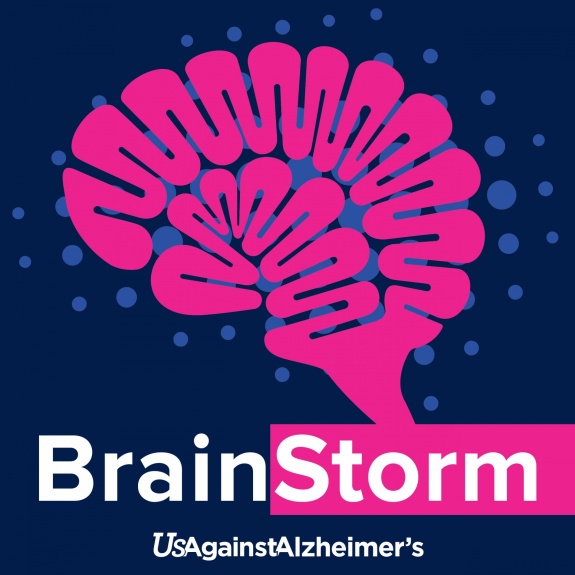Subscribe on your favorite player
Listen on Apple Podcasts Listen on Spotify Listen on Stitcher Listen on Google PodcastsLate-Life Depression & Cognitive Impairment - Dr. Scott Mackin

About This Episode
Sixty percent of people with late-life depression also suffer from some form of cognitive impairment, and research shows depression is linked to a faster decline into dementia. But the mechanisms that connect depression and Alzheimer’s are still a mystery.
Dr. Scott Mackin is one of the researchers working to shed light on the link. He’s the Principal Investigator on The Alzheimer’s Disease Neuroimaging Initiative - Depression Project (ADNI-D) and Associate Professor of Psychiatry at the University of California, San Francisco School of Medicine, and this month he joined us on Alzheimer’s Talks to share his fascinating research.
CLICK THE PLAY BUTTON AT LEFT TO HEAR THE DISCUSSION.
Key Highlights from the Call
1. Depression is a serious health problem for older adults. Up to 15% of older adults have clinically significant depression, with symptoms that impair cognition and daily functioning. Sixty percent of patients with depression suffer from cognitive impairments, and late-life depression is associated with more rapid rates of cognitive decline.
2. Despite the strong link, depression is often excluded from studies on dementia. Because depression and Alzheimer’s can involve similar symptoms, individuals with depression are often excluded from Alzheimer’s studies, leaving researchers with little data on the link between depression and cognitive decline. The ADNI-D study aims to address that gap.
3. ADNI-D is testing several hypotheses about the mechanism that links depression with cognitive decline. White matter lesions, cortical atrophy, blood flow reduction, amyloid deposition and biomarkers are all possible pieces of the biological puzzle linking these diseases.
4. Sharing and combining data is important – and ground-breaking. ADNI has pioneered data-sharing, using standardized protocols to allow researchers to combine data sets and build on existing work.
5. Depression is treatable. Some cognitive symptoms – particularly information processing speed – can even be reversed with treatment. There are a number of effective treatments, so if you’re concerned you might have depression, talk to your primary care physician!
6. You can help the search for a cure. The ADNI-D study is recruiting now at study locations in San Francisco and Pittsburgh. To find out more about how to get involved, call 415-476-7046 (California) or 412-246-6487 (Pennsylvania).
You can also help researchers by signing up for the Brain Health Registry, an online registry that lets you share data with researchers working on brain health by filling out questionnaires and playing online “brain games.” Sign up here.
Our thanks to Dr. Scott Mackin for sharing his fascinating research with us.
